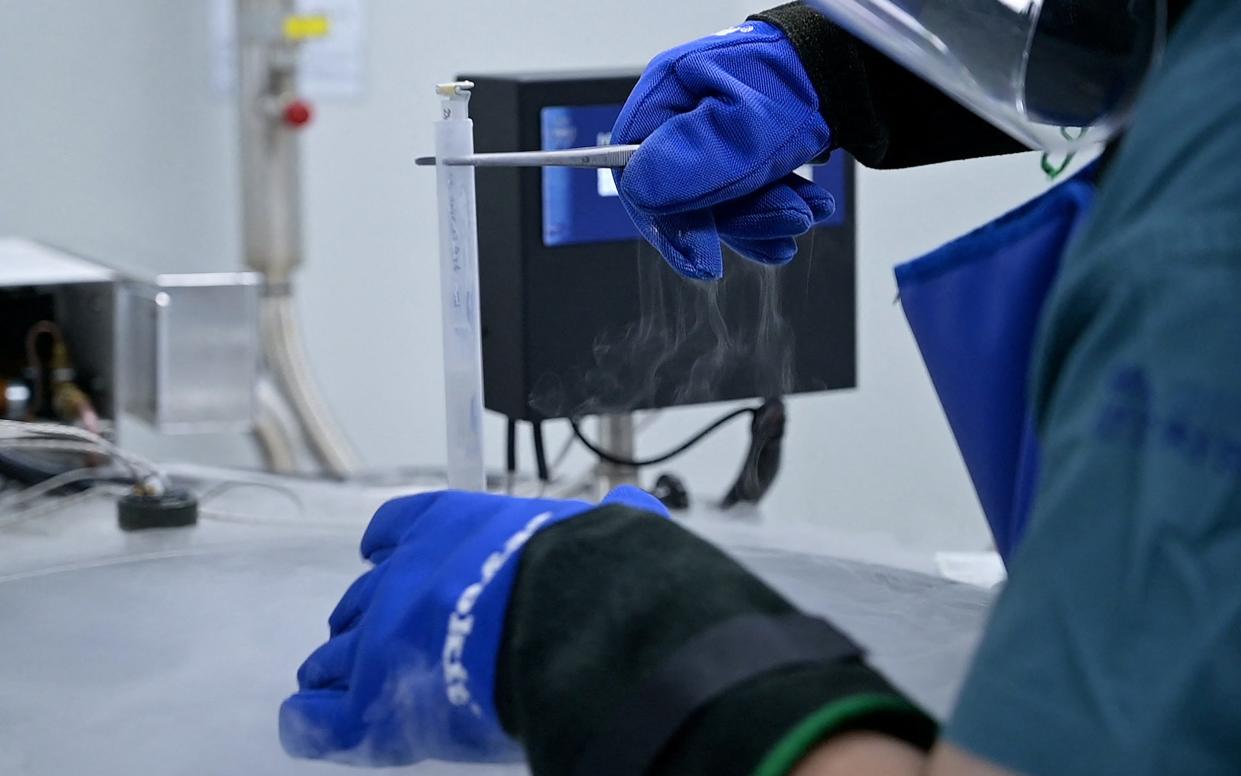Fertility clinics ‘misleading women’ over chance of having a baby

Fertility clinics are misleading women over their chance of having a baby after egg freezing, according to a leading charity.
More than two in five fertility clinics do not state what the chances of successfully becoming pregnant are and could be in breach of advertising rules.
The sector’s watchdog, the Human Fertilisation and Embryology Authority (HFEA), says clinics “must not give false or misleading information”.
The Fertility Network, a charity, said women are being “misled” by information on websites because a successful pregnancy is not guaranteed by the procedure.
32 of the 78 clinics in the UK do not make success rates clear, analysis by the BBC found.
Of those, 31 publish the success rates of defrosting the eggs, which are up to 95 per cent, but this is only the first step of the process and women will subsequently be required to undergo treatment such as IVF.
There are a number of variables that can affect the chance of success, including age, health and the quality of the sperm.
The success rates are lower than when using fresh eggs, which is around 20 to 30 per cent, and could be as low as five per cent for people in their 40s, the HFEA says.
Dr Catherine Hill, from the Fertility Network, said: “I feel very angry for patients because they are being misled by this level of information.”
Success rates dependent on age
Tim Child, an associate professor of reproductive medicine at the University of Oxford and board member at HFEA, told the Today programme: “Egg freezing opens up reproductive options for women but it’s vital they have access to information to inform their decision on that.
“For some women it’s the right thing to do, but it’s important they get an idea of the success rates.”
He said success rates were “very much dependent on age” when eggs are frozen.
He said it was important that women contact clinics to find out more information on the cost and chance of having a baby.
Women are increasingly turning to egg and embryo freezing so that they can have children later in life.
There were more than 4,000 egg freezing procedures in the UK in 2021, compared with nearly 400 in 2011, according to HFEA.
The procedure is not routinely available on the NHS unless a woman is undergoing medical treatment that could jeopardise her reproductive health, such as chemotherapy.
Last week, The Telegraph revealed that the Homerton Fertility Centre in east London had been ordered to suspend services by the regulator after repeated cases in which embryos did not survive the freezing process.
The HFEA intervened after The Telegraph raised concerns from whistleblowers about warnings of a risk that 153 frozen embryos may not survive its processes, with 45 patients affected.


